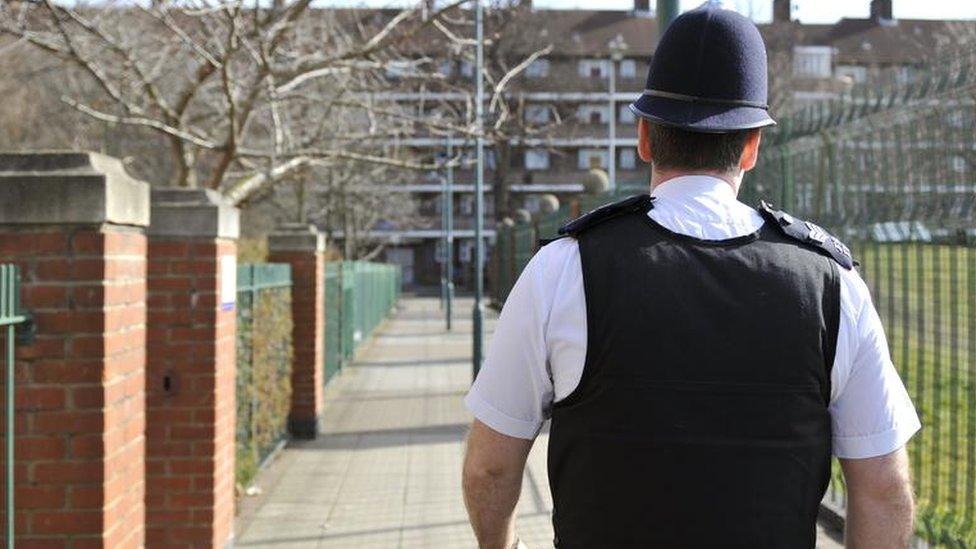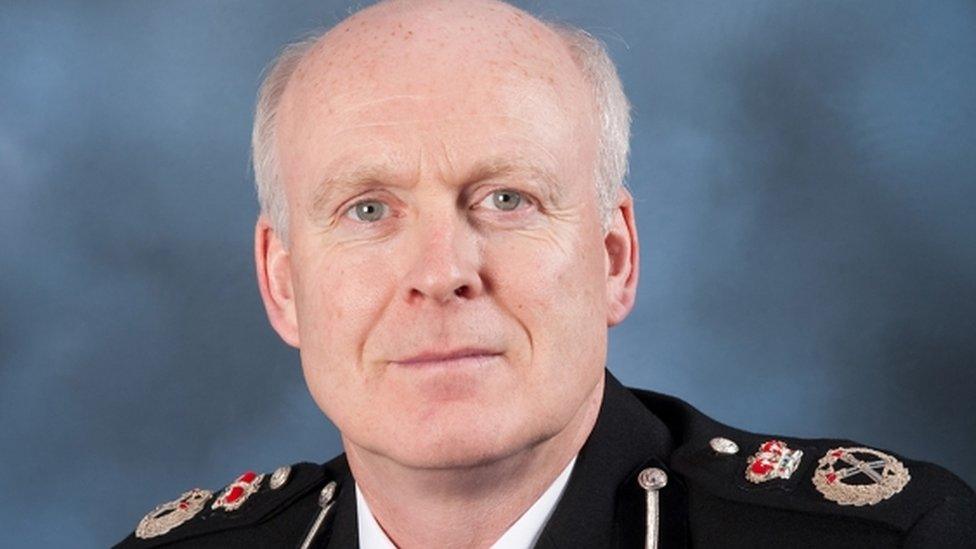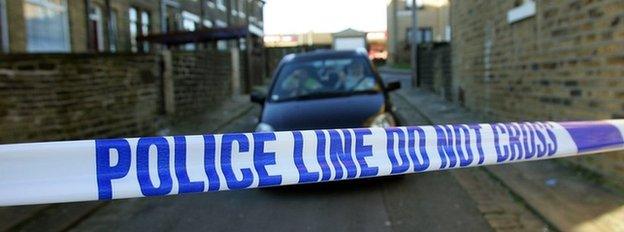Cuts mean police 'will struggle with terror'- chief constable
- Published

Police would struggle to monitor terror threats if further significant cuts were made to budgets, a chief constable has told the BBC.
Without funds for neighbourhood policing a "significant footprint of terrorism" could be overlooked, Steve Finnigan of Lancashire Police said.
Greater Manchester Police chief Ian Hopkins said some burglaries may not be responded to immediately in future.
The Home Office is rewriting the Whitehall funding formula for police.
Meanwhile ministers are negotiating on the settlement the Home Office itself will receive at the Spending Review.
'Footprint of terrorism'
Mr Hopkins, recently appointed chief of the GMP, warned some thefts, such as mobile phones being stolen, might not be investigated in future.
He said phone thefts could be reported on a website.
He said the police could provide a better, cheaper service by working more closely with health, mental health and social workers.

Chief constable Steve Finnagan is concerned about the impact of police cuts on the ability to monitor terror threats
Chancellor George Osborne has asked government departments to draw up plans for 25% and 40% cuts.
Chief constable Steve Finnigan said if his budgets were cut on that scale he feared he would lose all his local policing teams.
Citing the case of a 15-year-old Blackburn boy imprisoned for plotting to behead police officers, he said: "Here in Lancashire we have got a significant footprint of terrorism that we have to keep a very close eye on. That would be made very difficult if I had to do away with neighbourhood policing."
He has previously warned that with further cuts his force might not be viable.
Spending directly allocated for counter terrorism has been protected by the Treasury.

Analysis

Budgets have fallen, so too have headline crime figures. That makes it very hard for chief constables to insist more cuts will cripple them.
But crime accounts for just part of their workload. Road accidents, protests and missing people are all police business
There is no perfect way to guess what demand they will face in the future, or how well they do at the moment. No way either - for now - to know how much money they will get.
The Home Office is engaged in what one observer described to me as a "bloody knife fight" with the Treasury.
The Inspectorate that judges police is clear though: some forces have done much better than others at making plans.
From some there are ambitious ideas for change. From others, particularly off the record, you hear what is either forthright lobbying - or panic.
A great many, though worry budgets will force them to retreat from communities, which in turn could threaten their legitimacy with the public.
And almost to an officer they agree, policing will look very different in the future.

Correspondence seen by the BBC shows the government is considering whether elected Police and Crime Commissioners should have greater powers to put up council tax.
At the moment they need to hold a referendum if they increase the charge for policing on council tax bills by more than 2%.
Some Police and Crime Commissioners want the referendum rule scrapped.
'Routine incidents'
Mr Hopkins told BBC Radio 4's PM programme that police could use technology to record phone thefts, provide crime numbers to victims, and identify spates that the police would then look into.
"In the background our systems are carrying out the analysis and saying well actually there's a spike in that particular area or a hotspot that you need to investigate.
"But on a routine incident like that, actually you'd get the crime number, it would be filed and we would do very little with it."
Police would always respond to a burglary in progress, or to vulnerable householders, he said.
But he said in the event of a homeowner returning from a weekend away to find that a break in had occurred, officers might not come immediately.
"If you're someone like me or yourself who's perfectly capable of phoning your insurance company, getting the locks sorted or the window boarded up then I don't see the necessity for us to turn up at that stage.
"We can investigate that slow time."
Police minister Mike Penning said: "Police reform is working and crime has fallen by 8% year-on-year and by more than a quarter since 2010, according to the independent Crime Survey for England and Wales.
"However, if we want policing in this country to be the best it can be, then we must reform further, and that includes putting police funding on a long-term, sustainable footing."